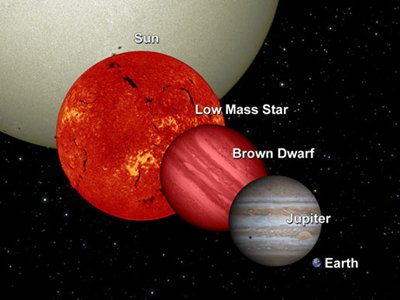 Jupiter is the largest planet in the solar system. The mass of Jupiter is 2.5 times larger than all of the planet’s masses combined. Its diameter is eleven times larger than that of the earth. Despite this the Earth is significantly denser than Jupiter. This is because the volume of Jupiter is equivalent to 1,321 earths but is only 318 times more massive. Other objects in the solar system particularly the extra-solar planets are measured with “Jupiter Mass.”
Jupiter is the largest planet in the solar system. The mass of Jupiter is 2.5 times larger than all of the planet’s masses combined. Its diameter is eleven times larger than that of the earth. Despite this the Earth is significantly denser than Jupiter. This is because the volume of Jupiter is equivalent to 1,321 earths but is only 318 times more massive. Other objects in the solar system particularly the extra-solar planets are measured with “Jupiter Mass.”
Jupiter’s mass is 1.8986×1027 kg, while its density is at 1.326 gm/cm3. That’s as much as 317.8 Earths and is 1/1047 the size of the Sun. Jupiter's gravity is 2.5 times more than Earth's gravity; something that weight 10 kg on Earth would weight 25 kg on Jupiter.
Some theories suggest that if Jupiter acquired more mass, the planet would lessen in size. The reason for this is that the interior of the planet would be much more compressed as the gravitational force of the planet would increase as mass increases. This would not happen if the increase in mass is insignificant but a large enough increase would cause the planet to decrease in volume and diameter.
Because of these theories, it is implied that Jupiter’s current size is the largest such a planet with that kind of composition can become. Hypothetically speaking if Jupiter does increase in mass the shrinking of the planet will continue until stellar ignition occurs. Some astronomers believe that Jupiter was a “failed star.” This is an assumption though, as it is still unclear whether the formation of stars have the same as the formation of planets. Jupiter produces as much heat as it receives from the Sun.
The Planet Jupiter
